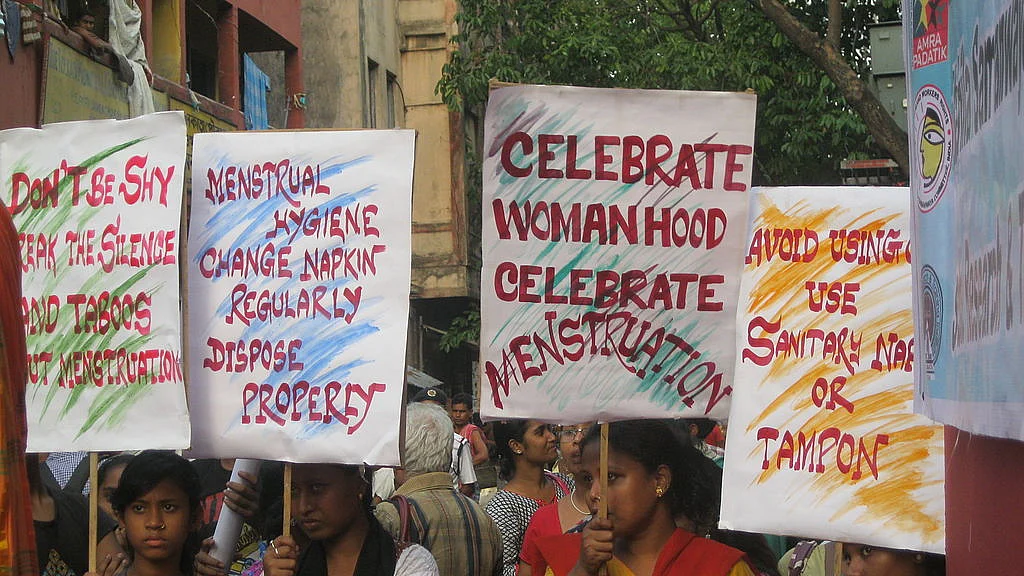SC seeks Centre's response on free sanitary pads for girls studying in govt schools
The SC on Monday sought responses from the Centre, states and union territories on a PIL seeking issuance of directions for providing free sanitary pads to girls studying in government school

The Supreme Court on Monday sought responses from the Centre, states and Union territories (UTs) on a PIL seeking issuance of directions for providing free sanitary pads to girls studying in classes 6 to 12 in government schools across the country.
A bench comprising Chief Justice D Y Chandrachud and Justice P S Narasimha took note of the plea of social activist Jaya Thakur, a Madhya Pradesh-based doctor, and issued notices to the central government and all the states and UTs.
The top court also sought assistance of Solicitor General Tushar Mehta in the matter, saying the petitioner has raised the important issue of sanitation and hygiene of girl students in government and government-aided schools.
The petition was filed by Thakur on November 2, seeking directions to the Union of India and the States to provide free sanitary pads to school girls. Thakur also called for a separate girls' toilet in all Government aided and residential schools in her PIL. She highlighted that females aged between 11 to 16 years coming from poor backgrounds often lack access to menstrual hygiene.
"Menstruation makes the need for safe water, sanitation and hygiene important for women. In such conditions, access to safe water, sanitation and hygiene can be a matter of life and death. According to a report published by Water Aid, illnesses related to a lack of water, basic sanitation and hygiene were responsible for the deaths of almost 800,000 women around the world in a single year making it the fifth biggest killer of women behind heart disease, stroke, lower respiratory infections and chronic obstructive pulmonary disease", the plea stated.
Thakur also stated that the lack of Menstrual Hygiene Management mechanisms and the stigma around menstruation in India lead to girl children opting out of education. "Unfortunately, it [menstruation] continues to be treated as a taboo in many societies, shrouded in a culture of silence and shame,” she said.
Thakur suggested a three-stage awareness program to be undertaken by public schools:
First: spreading awareness about menstrual health and unboxing the taboos that surround it.
Second: providing adequate sanitation facilities and subsidised or free sanitary products to women and young students, especially in disadvantaged areas.
Third: to ensure an efficient and sanitary manner of menstrual waste disposal.
Thakur took an active part in the campaign against the 12 per cent GST that was earlier levied on sanitary products. It was later scraped by the Indian government in 2018. The distribution of free sanitary pads to underprivileged girls has however remained an unresolved issue in the country.
Follow us on: Facebook, Twitter, Google News, Instagram
Join our official telegram channel (@nationalherald) and stay updated with the latest headlines
